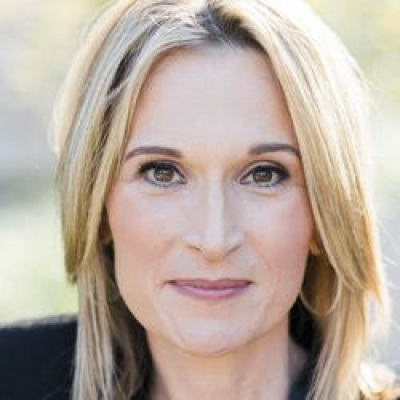I Found Hope in Thailand's Red-Light District

This week, thousands of high school and college students, pastors, and even Hollywood actors, country music stars, congress members, and NFL and NBA athletes posted selfies with red "X"s on the back of their hands on social media.
They did it as part of a movement to expose the stark reality that millions of men, women, and children are trapped in modern-day slavery. The FBI says this is the "third largest criminal activity in the world."
This is why a few weeks ago, Ashton Kutcher went up to Congress to testify before the Senate Foreign Relations Committee.
"The right to pursue happiness for so many is stripped away, it's raped, it's abused, it's taken by force, fraud or coercion. It is sold for the momentary happiness of another," said Kutcher, who in 2009 founded an organization to fight human trafficking through technology.
If you thought slavery was a problem of the past, you might need to rethink that. It's real — I've seen it firsthand.
I could feel my breathing quickening and my head getting lighter as I walked into the red-light district of Pattaya, Thailand. Women, some young girls, lined the streets on either side. They weren't there enjoying a night out with friends, or meeting family for dinner. They were working, their bodies available for sexual pleasure for as cheap as $8.50.
As I made my way down the crowded streets, past bars, restaurants, and auto rickshaws, I stumbled into Kanya. I was surprised to hear we both had a son the same age. For a moment we seemed kindred spirits, two women joined by the often unspoken joys and frustrations of motherhood. But for as much as we had in common, our lives were worlds apart. Unlike the life I've known, poverty and desperation have driven Kanya into the sex industry. She has only two options: Either see her son go hungry or sell her body to strangers to provide him with an education and food.
The streets of Pattaya are littered with stories like these — of mothers, daughters, and sisters who have become trapped in the unending cycle of the sex industry, and in the process lost their freedom. But there also are stories of those who have never known freedom.
Gloria was sold from her rural village to a man in Bangkok when she was a teenager. He raped and beat her daily and kept her locked in a shed like an animal. At night, he would sell her to his friends. Gloria still remembers the stench of alcohol on their breath. She winces at the memory of her captor beating her to the point of breaking her arm. Her story spoke of a kind of despair we rarely encounter or even imagine.
Each story I heard stacked on top of the other to expose the grim reality hundreds of thousands of women live in today. It was overwhelming.
How do you even begin to bring light amidst such palpable darkness?
For my team and me, the answer is found in the definition of freedom. Freedom begins with the power to choose. If we can empower these women to have a choice, then we can help them take the first step toward freedom.
This is why in January, during National Slavery and Human Trafficking Awareness Month, World Help dedicated a safe home for women in Pattaya. Women who have come out of the sex industry will be offered a safe place to live and a fully funded education thanks to the generosity of others. They will be surrounded by a loving community, which will care and provide for them. When night comes, they won't have to be afraid anymore — and they will no longer have to go to the streets to earn a living. They will now have the power to choose how to live their lives.
At least that's how Gloria's story ends.
In a miraculous turn of events, her captor let her go. She made her way to our home, where her physical and emotional injuries were nursed back to health. She completed her high school education, and found hope in a local community of faith. Her nightmare has ended, and a new day has begun.
The truth is that the world pays too little attention to this global crisis, but we can always do something to fight for those who need us. We can join initiatives like End It Movement to raise awareness, and we can help women, like Gloria and Kanya, start a new life.





















